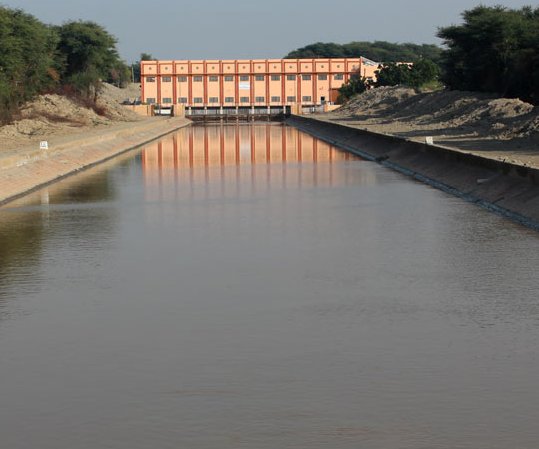
Camel is an important part of the desert eco-system and plays an important role in the rural life of western Rajasthan. It is very critical for the basic survival of the people in the villages which are spread out in the arid areas of the Thar Desert.
This peaceful and hardworking animal has always been used for agriculture and transportation in the desert regions. This is due to its indomitable nature of surviving without water and fodder for longer periods. According to the research being done, an average riding camel can travel up to 100 kilometers at 15 miles per hour at a stretch. It is also been observed that a fit adult camel can carry a weight of 19 to 20 quintals for more than 4 hours without taking a break.
Given all these qualities, this animal has a great importance in the lives of the pastoral people of Rajasthan. It has been rightly called the Ship of the Desert as it is indispensable for the people here. This tall lanky animal has played a significant role in civil law and order, defense and battles from times ancient sarda canal.
The World famous Ganga Risala of the erstwhile Bikaner state was accepted as the Imperial Service Troup and had also participated in both the World Wars. The construction of the Indira Gandhi Canal also saw full participation of this peaceful animal. Given its unique bio-physiological characteristics, it has become an icon as it adapts itself to the challenging climatic conditions of the semi-arid and arid regions in the state and more so surviving in it.
Hence in order to study the various traits of this dependable animal, the government of India set up the National Research Center on Camel at Jorbeer, which is 10 kilometers from Bikaner in Rajasthan.
National Research Center on Camel:
The National Research Center on Camel was set up in 1984. Earlier this center was recognized as a Camel Breeding Farm which operated under the guidance of the College of Veterinary and Animal Science, Rajasthan Agriculture University, Bikaner.
The center is managed by the government and is the only one of its kind in the entire Asian region. The highlight of this center is that there are nearly 230 camels here which belong to three different breeds. The Center employs the traditional pastoral community members, the Rabari or Raika to breed and nurture these camels.
Objectives of the Center: The center is a place where research and development is being done about the camel production and its health. There are some basic objectives of the center which form the basis of its operation:
• Influence of various farming practices on the production and health of these animals.
• Carrying out baseline surveys in relation to the camel genetic resource in India
• Finding out the milk producing potential in the animal
• Carrying out research and analysis for the improvement of the reproductive performance of the camel
• Research for increasing productivity through nutritional interventions
• Study of the impact of technology on the socio-economic status of camels
• Developing data base and information resource material on camel research and development
• Collaboration with domestic and international stakeholders
• Developing human resources in camel health and husbandry
Apart from this, there are other activities too which are being taken up by the center. There is also a milk vending booth, where the Rabari worker provides you with fresh camel milk which is supposed to be very nutritive. This is one of the most popular tourist activities where you can see the milk being drawn from the camel. This activity can be enjoyed after the camels return from their grazing.
No comments:
Post a Comment